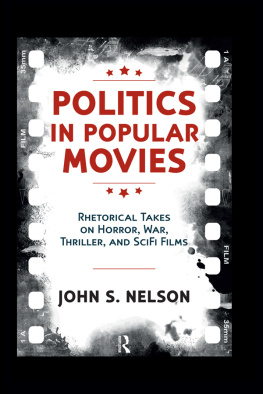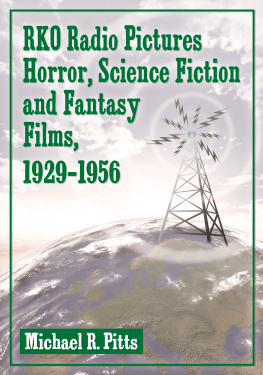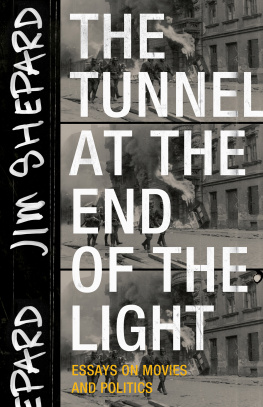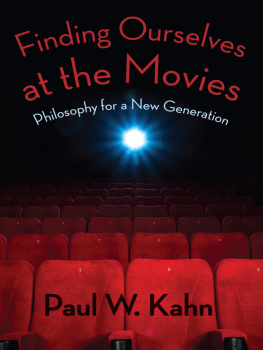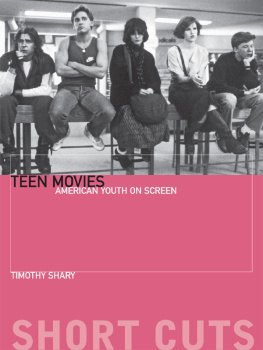P OLITICS IN P OPULAR M OVIES

David L. Paletz, Series Editor
Duke University
Published in the Series
Spinner in Chief: How Presidents Sell Their Policies and Themselves
Stephen J. Farnsworth
Evil and Silence
Richard Fleming
Media and Conflict: Escalating Evil
Cees J. Hamelink
The Presidential Road Show: Public Leadership in an Era of Party Polarization and Media Fragmentation
Diane J. Heath
Netroots: Online Progressives and the Transformation of American Politics
Matthew R. Kerbel
Politics in Popular Movies: Rhetorical Takes on Horror, War, Thriller, and SciFi Films
John S. Nelson
The Age of Oprah: Cultural Icon for the Neoliberal Era
Janice Peck
Sex and Violence: The Hollywood Censorship Wars
Tom Pollard
Art/Museums: International Relations Where We Least Expect It
Christine Sylvester
Mousepads, Shoe Leather, and Hope: Lessons from the Howard Dean Campaign for the Future of Internet Politics
Zephyr Teachout and Thomas Streeter, et al.
Forthcoming in the Series
The Politics of Interracial Romance in American Film
Carole V. Bell
Creative Destruction: Modern Media and the End of the Citizen
Andrew Calabrese
Rightroots: Conservative Media and the New Republican Populism
Diana T. Cohen
Congress and the Media
Stephen E. Frantzich
Media Power, People Power
Annabelle Sreberny and Gholam Khiabany
Social-Issue Documentaries: Strategies for Political Impact
David Whiteman
Social Media and Political Engagement
Michael A. Xenos
First published 2015 by Paradigm Publishers
Published 2016 by Routledge
2 Park Square, Milton Park, Abingdon, Oxon OX14 4RN
711 Third Avenue, New York, NY 10017, USA
Routledge is an imprint of the Taylor & Francis Group, an informa business
Copyright 2015, Taylor & Francis.
All rights reserved. No part of this book may be reprinted or reproduced or utilised in any form or by any electronic, mechanical, or other means, now known or hereafter invented, including photocopying and recording, or in any information storage or retrieval system, without permission in writing from the publishers.
Notice:
Product or corporate names may be trademarks or registered trademarks, and are used only for identification and explanation without intent to infringe.
Library of Congress Cataloging-in-Publication Data
Nelson, John S., 1950
Politics in popular movies : rhetorical takes on horror, war, thriller, and scifi films /
John S. Nelson.
pages cm. (Media and power series)
Includes bibliographical references and index.
ISBN 978-1-61205-556-5 (hardcover : alk. paper)
1. Politics in motion pictures. 2. Motion picturesPolitical aspectsUnited States.
I. Title.
PN1995.9.P6N45 2014
791.436581dc23
2014012418
ISBN 13 : 978-1-61205-556-5 (hbk)
ISBN 13 : 978-1-61205-557-2 (pbk)
for Bob Boynton, treasured colleague in lifelong learning
C ONTENTS
Movies can be exciting to see, and many are joys to discuss! Popular movies can be surprisingly smart about politics. Sometimes these are the portentous politics of state or war, but often they are the everyday politics of family, romance, business, church, neighborhood, school, and such. This book analyzes politics in several handfuls of well-known films from four popular forms: horror, thriller, science fiction, and war. The aims are to appreciate the individual movies and their shared forms, to understand their many politics, and to provoke some rollicking conversations. The means are loosely related film takes that advance some fairly ambitious arguments about recent movies and their politics.
Many of these arguments spring from viewing movies and discussing their politics with family members, especially with Connie Nelson. Several of these analyses arise from conversations with students in various college courses I have ventured on the politics of film. Thoughtful responses have greatly improved the concepts, arguments, and prose in pages to come. The same goes for many reviewer suggestions about the full manuscript. To the family, friends, students, and colleagues who have contributed such insights, let me offer thanks.
Comments on some of my initial forays into the politics in popular movies came from a group of impressive colleagues who converged in 1998 on the Vakava Finnish Graduate School in Political Science and International Relations at the University of Jyvskyl in Finland. Its been an instructive pleasure to follow the inquiries of such talented social scientists as Matti Hyvrinen, Kia Lindroos, and Kari Palonen. This book owes much to them as well.
Early inspiration came also from David Paletz, then editor of Political Communication and now of the Paradigm series on Media and Power in which this book appears. David has long encouraged scholars of political communication to keep an eye on film. His appreciation for politics and movies is keen, and his suggestions for my work have been incisive. I thank David for his personal help and his larger efforts. I also thank the manuscripts principal reviewer and the Paradigm staffespecially Annie Daniel and Jennifer Knerrfor their valuable advice.
My favorite venues for the scholarly discussion of politics in movies and other media have included the University of Iowa Project on Rhetoric of Inquiry; the Foundations of Political Theory Workshop on Political Myth, Rhetoric, and Symbolism; and the Summer Conference on Argumentation provided by the National Communication Association and the American Forensic Association. All promote an intense but informal exchange of experiences that I find especially invigorating, and I thank the many colleagues who have shared enlightening ideas there. For the same reason, I thank the graduate and undergraduates students who have used scores of seminars at the University of Iowa to share with me their enthusiasms for movies of many kinds. I offer the following takes on films in the hope that the politics in popular movies may continue to intrigue us all.
C HAPTER 1
F ILM T AKES
Movies are often about politics, sometimes when they least seem to be.
Roger Ebert
Why study the politics in popular movies? This can make the movies themselves more enjoyable and enlightening. It can enhance our accounts of politics. And it can enlarge our understanding of popular cinema in our politics and lives. Plus it can be lots and lots of fun!
Movies help make the myths that we live every day. They influence the looks we like, the sounds we make, the words we speak, the attitudes we take, the possibilities we imagine, and the deeds we do. Films dramatize the stories that symbolize who we are as individuals, institutions, and communities. They show whence we have come and where we might be going. There are many important politics in movie mythmaking, for politics permeate these aspects of ourselves and our lives. They are not only the momentous politics of government but especially the mundane politics of popular culture and everyday life for ordinary people.
Even when it might seem otherwise, the art of movie-making is powerfully political. They invite our political exploration.
Our primary disciplines of power are politics, and our principal disciplines of politics are rhetorics. The ancient Sophists invented rhetoric as the study and practice of oral, and especially oratorical, politics. And these come together with special power in cinema.

